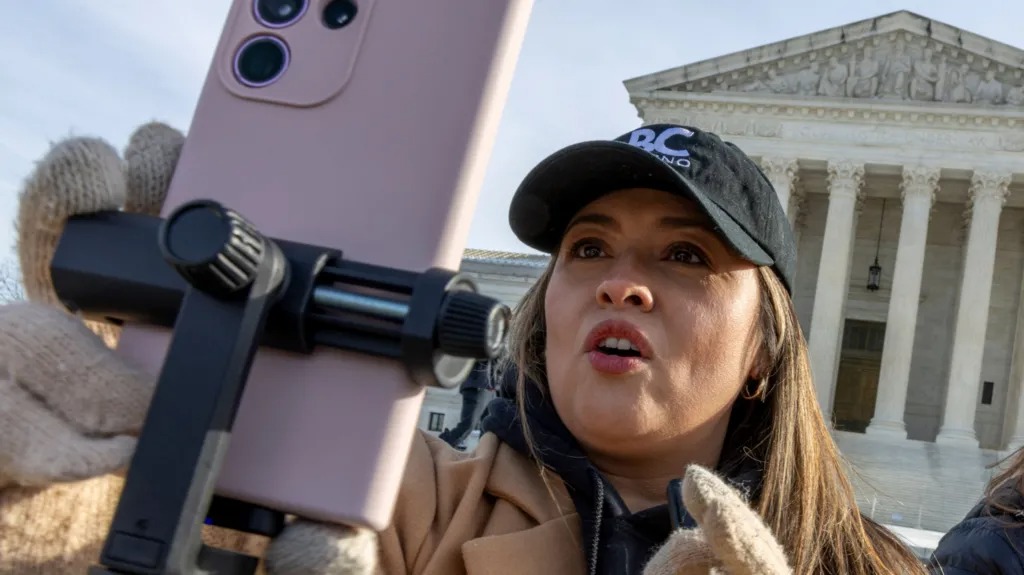
US Supreme Court Upholds TikTok Ban Law
The US Supreme Court TikTok ban decision has created shockwaves across the nation. On Friday, the Court upheld a law requiring TikTok’s Chinese parent company, ByteDance, to sell its US operations by January 19, 2025, or face an outright ban. This ruling has significant implications for the platform’s 170 million US users and raises debates over free speech and national security.
ByteDance had challenged the law, arguing it violated the First Amendment rights of American users. However, the Supreme Court unanimously rejected their plea, marking a decisive moment in the ongoing TikTok controversy.
What Does the TikTok Ban Mean?
The ruling mandates that TikTok’s operations in the US must be sold to a neutral party before January 19, 2025, or the app will be banned. This would involve:
- Removal of TikTok from Apple’s App Store and Google Play.
- Disabling access to TikTok via web hosting services.
- Ending updates and security patches, rendering the app unusable over time.
TikTok CEO Shou Zi Chew expressed disappointment but also indicated optimism about working with incoming President Donald Trump. Chew stated, “We thank President Trump for his commitment to keeping TikTok available to Americans.”
Key Timeline of the TikTok Ban
Here’s a breakdown of how events unfolded:
- April 2024: President Joe Biden signs the TikTok bill, giving ByteDance six months to sell its controlling US stake.
- August 2024: The US government sues TikTok, accusing it of mishandling children’s data.
- December 2024: A federal appeals court rejects TikTok’s appeal to overturn the ban.
- January 2025: The Supreme Court hears arguments and upholds the law just days before the January 19 deadline.
Why Was TikTok Banned?
The ban stems from national security concerns. Lawmakers and intelligence agencies argue that TikTok’s ties to China pose a risk, citing a 2017 Chinese law requiring companies to cooperate with the government’s intelligence activities.
US Attorney General Merrick Garland stated:
“Authoritarian regimes should not have unfettered access to Americans’ data. This decision prevents China from weaponizing TikTok against US national security.”
TikTok has denied these allegations, insisting that user data is stored outside of China and has never been shared with the Chinese government.
Content Creators React to the Ban
The TikTok ban has sparked concern among content creators, many of whom rely on the platform for income.
Popular TikTok creator Drew Talbert, with over 5 million followers, said:
“I went from being a waiter to owning a home—all because of TikTok. Losing it feels devastating.”
Others, like Kalani Smith, shared how the platform transformed their lives:
“I was homeless before TikTok. Now, it’s my livelihood. This ban feels like a betrayal.”
What’s Next for TikTok?
TikTok has indicated it may shut down its US operations if no resolution is reached. Meanwhile, incoming President Trump has hinted at finding a “political solution”.
On his social media platform, Truth Social, Trump posted:
“The Supreme Court decision was expected. My decision on TikTok will be made soon. Stay tuned!”
Trump also revealed that he discussed TikTok with China’s President Xi Jinping, further fueling speculation about a possible deal.
Impact on Free Speech and Technology
The Supreme Court acknowledged TikTok’s role as a significant platform for free expression, but it emphasized the national security risks as justification for the ban.
In their ruling, the justices stated:
“Congress has determined that divestiture is necessary to address well-supported concerns regarding TikTok’s data collection practices.”
Critics argue the decision sets a dangerous precedent. Noel Francisco, lawyer for TikTok, described the ban as an “extraordinary intrusion on free speech rights.”
Could TikTok Be Sold?
Despite ByteDance’s resistance, several potential buyers have expressed interest in acquiring TikTok’s US operations.
Rumors suggest parties like:
- Elon Musk (owner of X, formerly Twitter).
- A consortium of private equity firms.
- Steven Mnuchin, former US Treasury Secretary.
However, ByteDance remains firm, stating, “We will not sell TikTok under any circumstances.”
What Alternatives Are TikTok Users Exploring?
The impending ban has led users to explore alternatives like:
- Instagram Reels
- YouTube Shorts
- RedNote (Xiaohongshu)
However, many creators feel no app can fully replicate TikTok’s unique features, such as TikTok Shop, which integrates e-commerce directly into the platform.
Conclusion
The US Supreme Court TikTok ban ruling marks a critical moment in the debate over free speech, data privacy, and national security. While the app’s fate in the US remains uncertain, the decision has already disrupted the lives of millions of users and content creators.
Whether TikTok survives under new ownership or shuts down entirely, this case will undoubtedly shape the future of how governments regulate global tech platforms.
Internal Link: Explore other social media trends
External Link: BBC



